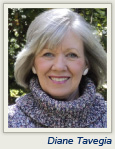 Two years ago, I was feeling fine except for a nagging problem with severe constipation. I believed this was caused by some loperamide I had taken to quell the episodes of diarrhea I experienced following dinner at a local barbecue restaurant. When the symptoms persisted for a couple of months, I decided to see my doctor. Although I was 58 at the time, I had never had a screening colonoscopy, and an examination of my colon showed a tumor about 1 inch in diameter.
Two years ago, I was feeling fine except for a nagging problem with severe constipation. I believed this was caused by some loperamide I had taken to quell the episodes of diarrhea I experienced following dinner at a local barbecue restaurant. When the symptoms persisted for a couple of months, I decided to see my doctor. Although I was 58 at the time, I had never had a screening colonoscopy, and an examination of my colon showed a tumor about 1 inch in diameter.
A subsequent biopsy of the mass and surrounding tissue found that I had stage IIIB colon cancer and that the cancer had spread to 5 out of 17 lymph nodes. My doctor assured me that once I had surgery to remove 18 inches of my colon and the malignant lymph nodes, followed by an adjuvant regimen of FOLFOX (leucovorin, fluorouracil, and oxaliplatin) chemotherapy to kill any errant cancer cells, I had a 71% chance of remaining cancer-free.
Comfort in Understanding
Getting a cancer diagnosis is pretty frightening, I admit, but the prospect of having chemotherapy was even scarier. I envisioned poison being put into my body and wondered whether it would burn or hurt. The fear of the unknown was just overwhelming to me.
When I mentioned to my oncologist that I was afraid of having chemotherapy, he explained what side effects I could expect—fortunately hair loss wasn’t among them—and asked one of his nurses to give me a tour of the treatment room. It was comforting to see people attached to IV poles sitting in chairs watching TV, chatting with their neighbors or reading and no one screaming in pain.
When it came time for me to start my chemotherapy, to my relief, my nurse explained what I might feel once the infusion started. When she had to adjust the dosage of saline I was getting to coincide with the end of my FOLFOX treatment, she again explained what she was doing. Once I understood what was happening, I felt fine.
During the course of my 12 treatments, another nurse would occasionally be assigned to me—one who wasn’t as forthcoming in letting me know what she was doing. So when she made an adjustment to the infusion machine, for example, my sense of panic immediately returned. Was something wrong, I wondered?
No matter what the situation, whether it’s a meeting with my oncologist to review my status, having a new diagnostic test, or getting chemotherapy, I just need to understand what’s happening. Patients with cancer have enough to worry about without having to second-guess the meaning of an unfamiliar sensation following a test or chemotherapy or a slight tick up or down of a particular result on a laboratory report.
Looking Ahead
I’m very lucky. I’ve been cancer-free since 2009, and my doctor now tells me that the chance my disease will recur is just 5%. During my illness I remained positive and tried to get on with my life. Married for nearly 41 years, I’m blessed to have raised four children. We’ve always had a tight family, and battling cancer has only brought us closer together.
During my cancer treatment, the other patients with colon cancer and I referred to our group as the Chemosabies. Sadly, I’m the lone survivor of that group. I feel I was spared for a reason, and I think that reason is to help other people going through similar circumstances. I’m going to do the best I can to live up to that goal. ■
Ms. Tavegia, age 61, lives in Villa Rica, Georgia.

